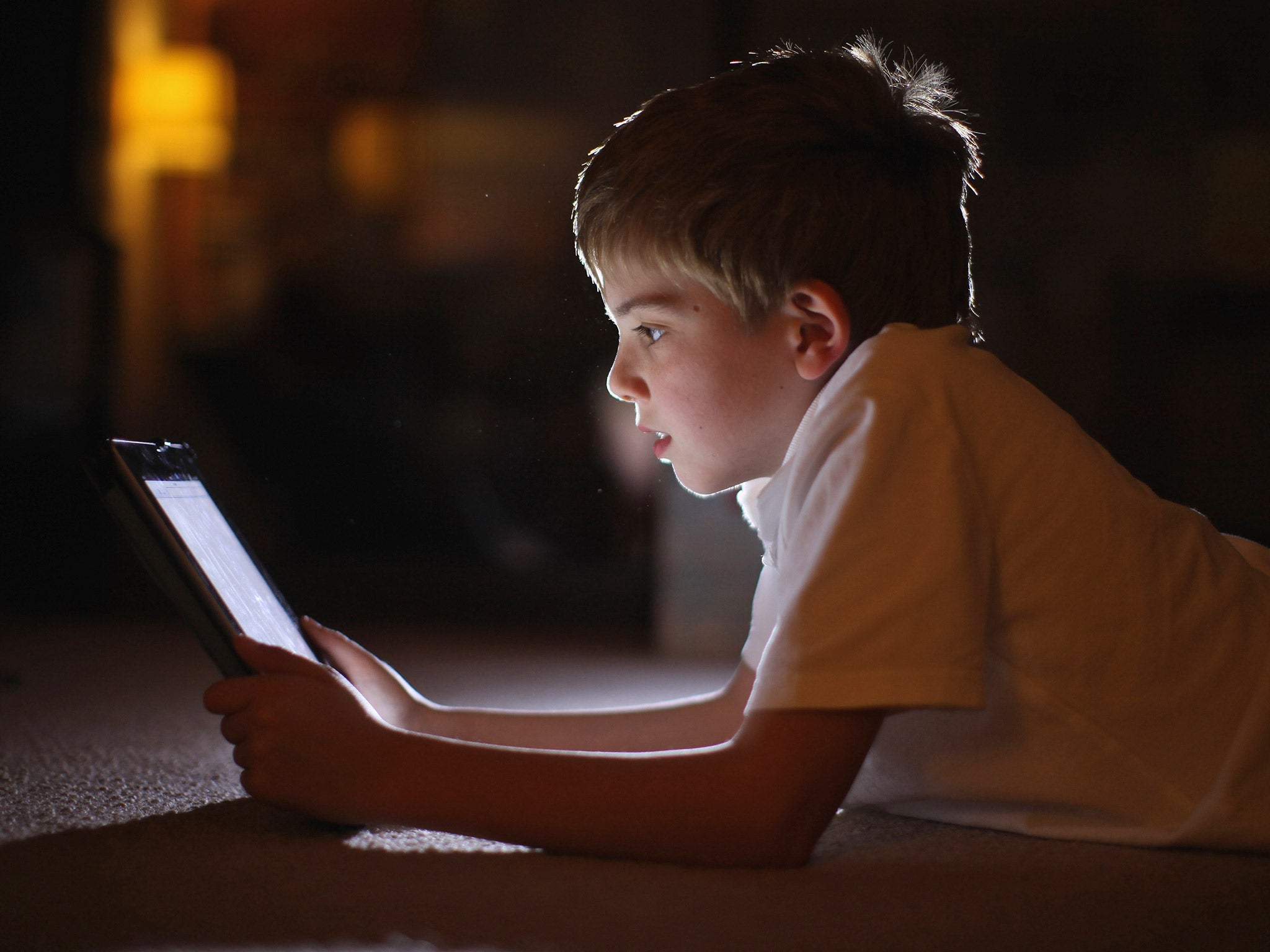Your support helps us to tell the story
From reproductive rights to climate change to Big Tech, The Independent is on the ground when the story is developing. Whether it's investigating the financials of Elon Musk's pro-Trump PAC or producing our latest documentary, 'The A Word', which shines a light on the American women fighting for reproductive rights, we know how important it is to parse out the facts from the messaging.
At such a critical moment in US history, we need reporters on the ground. Your donation allows us to keep sending journalists to speak to both sides of the story.
The Independent is trusted by Americans across the entire political spectrum. And unlike many other quality news outlets, we choose not to lock Americans out of our reporting and analysis with paywalls. We believe quality journalism should be available to everyone, paid for by those who can afford it.
Your support makes all the difference.Will new technology make British boys read more? As we report, researchers hope that ebooks could be the answer to the quiet, despairing pleas of many a parent and teacher faced with a recalcitrant young non-reader, more often than not male. For them, reading and literature is not “cool”, apparently, but the ebook, so it is thought, will revolutionise attitudes and bring the Victorian novel into closer contention with the Xbox for boys’ attention.
It is an idea that, unfortunately, does not stand up to much scrutiny. It seems unlikely that foisting ebooks upon the young will prove a complete substitute for the more traditional introductions to the joys of literature: parents reading bedtime stories; teachers encouraging their pupils to browse an imaginative selection; and well-stocked public libraries, the latter a beleaguered cause in an age of austerity.
Naturally, not every teacher can start their own Dead Poets Society, and not every parent will find a child enthralled by Jane Austen, or even JK Rowling, but these techniques have worked well over many years. Besides, children’s literature still has plenty to offer, so if a child – boy or girl – can be enticed to sample it they may well find themselves hooked.
History also cautions us about the benefits of expensive new technologies in the field of education. In October the OECD warned that schools were spending too much money on hi-tech equipment, given that in countries where such investment has been high there have been “no appreciable improvements” in student achievement. PowerPoint presentations are not obviously superior to the old blackboard, and word-processing software is probably inferior to pen and paper in making things stick in the memory. There are some teaching traditions well worth leaving behind, such as corporal punishment, tolerance of bullying and extreme sarcasm; but not every digital innovation need be embraced, however “cool” it may appear.

Join our commenting forum
Join thought-provoking conversations, follow other Independent readers and see their replies
Comments